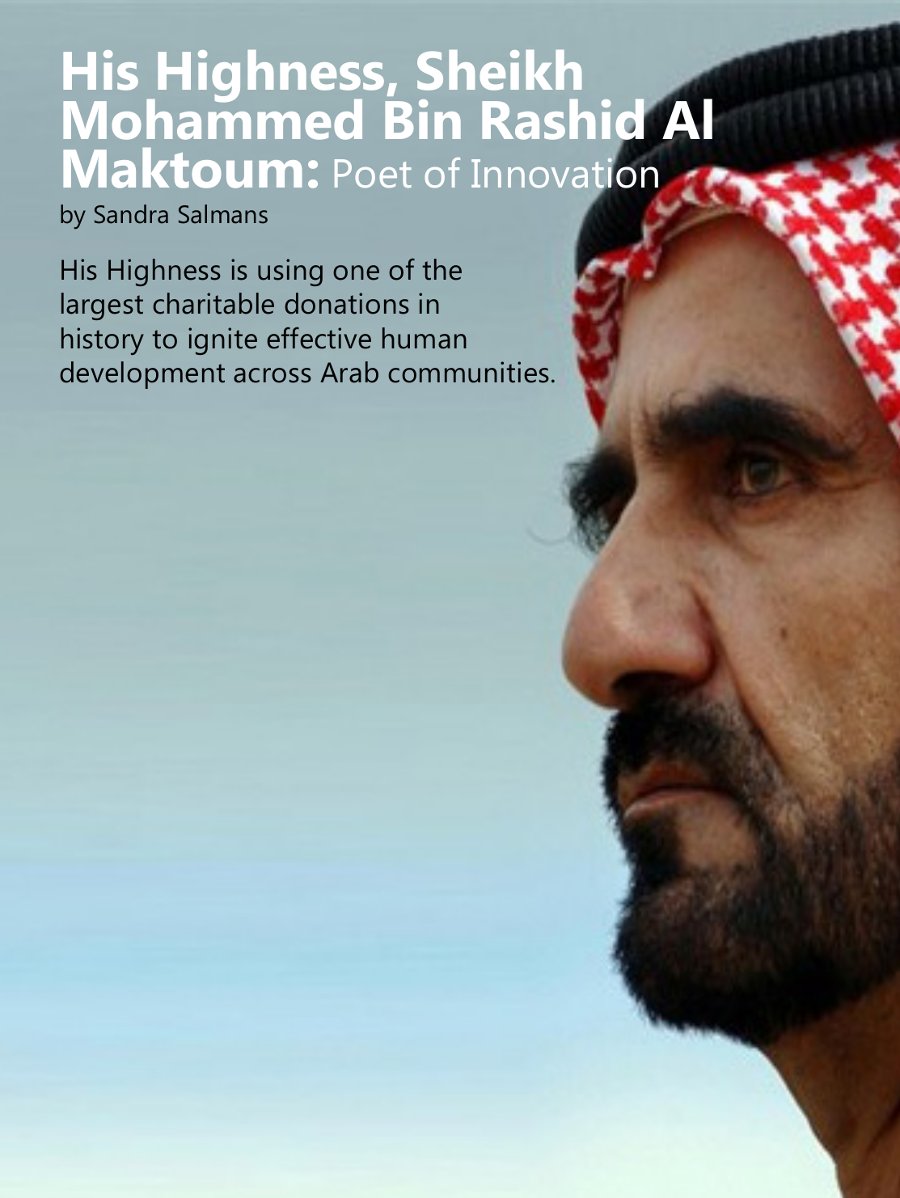



Memories are long in the Arab world. So perhaps it was not surprising that, when he announced plans nearly eight years ago to create a foundation with a gift of $10 billion, one of the largest charitable donations in history, His Highness Sheikh Mohammed Bin Rashid Al Maktoum harked back nostalgically to the Bait al-Hikma (the House of Wisdom), which was a center of learning during the Islamic golden age of the 800s. “I have always asked myself, ‘Why doesn’t the House of Wisdom come back renovated in the Arab capitals?’” said Sheikh Mohammed, 65, who is prime minister of the United Arab Emirates (UAE) and constitutional monarch of Dubai.
Now, through his Mohammed bin Rashid Al Maktoum Foundation and other philanthropic efforts, Sheikh Mohammed—whose net worth Forbes estimates at $18 billion—is trying to answer his own question. The foundation is intended to bring the next generation of Arabs more fully into the knowledge economy, focusing on three areas: culture, entrepreneurship and employment, and knowledge and education. So far, the foundation has invested in literacy (for example, pledging 100,000 books to children in the Arab world as well as grants to children’s book authors) and international exchanges of ideas, including conferences and access for its own fellows to prominent universities in the U.S. And like Bait al-Hikma 1,300 years ago, the foundation has supported the translation into Arabic of literary works from other countries. (The Sheikh is himself a prolific composer of traditional Nabati poetry.)
As the popular saying goes, it’s good to be the king, and that’s certainly true in Dubai. The foundation is the most ambitious—and lavishly endowed—of Sheikh Mohammed’s philanthropic undertakings, but it has plenty of company. From the moment he took over the reins of the UAE and Dubai from his elder brother in 2006, Sheikh Mohammed plunged into projects aimed at educating, empowering, and uplifting not only the Middle East but the entire developing world. His first step was to create the Dubai Harvard Foundation for Medical Research, to replicate the Harvard Medical School research model and bring the best training, research, and healthcare practices to Dubai, the Gulf, and the Middle East.
He has also sponsored a number of other philanthropic initiatives; while it’s unclear whether they receive direct contributions from his foundation, they benefit from his name and influence. They include Dubai Cares, which helps children in developing countries obtain an education, partly through providing them with school meals and healthcare such as deworming, renovated classrooms, and trained teachers; Dubai Foundation for Women and Children, the first licensed non-profit shelter in the UAE for women and children who are victims of domestic violence, child abuse, and human trafficking; and Noor Dubai, which provides health services to visually-impaired people in the developing world. Recently a UAE-based foundation announced the launch iof a $1 million annual prize for “the world’s greatest teacher”—a “Nobel Prize” for education, the press release declared, “under the patronage of His Highness Sheikh Mohammed bin Rashid Al Maktoum.”